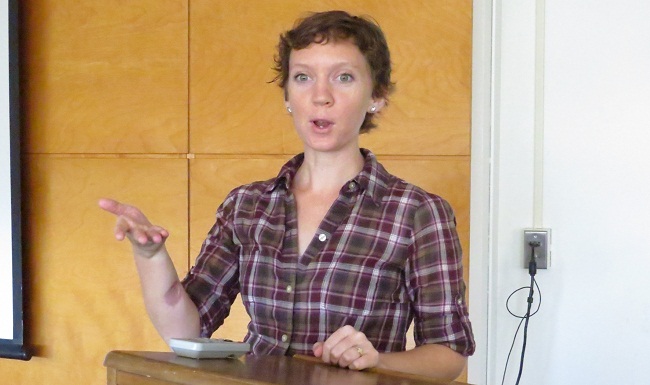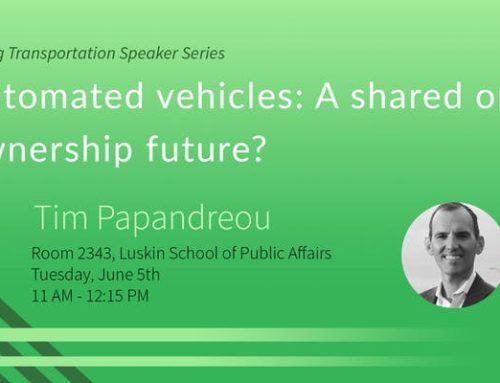On Monday, UCLA Urban Planning PhD student Carole Turley gave the first-ever Institute of Transportation Studies brown bag. She talked about Transportation Utility Fees, or TUFs.
What are TUFs? They are a charge for the use of the transportation system, and they are typically levied by cities on property owners. The concept is that the fee is proportional to a property owners’ use of local roadways. Usually, Institute of Transportation Engineers (ITE) Trip Generation rates are used to estimate trips based on land use, and then calculate the fee.
Carole studied 25 cities that have adopted TUFs. Most of these were quite small cities, and many of them are in Oregon. Two of the larger cities that have TUFs in place are Austin, Texas and Provo, Utah.
How do TUFs compare to other sources of transportation funding? They are appealing in that their relationship to use of the roadway system is more direct than for property taxes or sales taxes. Moreover, since they are not taxes, they do not need voter approval to be implemented. On the other hand, legal challenges have hampered the use of TUFs, partly because it is difficult to actually meter usage of the transportation system. TUFs haven’t always been able to meet legal standards set in state constitutions which require that fees be “related to benefit” for the payer and that fees be voluntary. Four separate state supreme courts have overturned TUFs, notably in Seattle, WA.
Discussion of TUFs sparked a broader exchange in the Q & A about how to measure use of the transportation system, and the relationship TUFs have to mileage-based fees.
About 25 students attended Carole’s talk. The brown bags serve as an informal space for students to share the research they are working on, and are a complement to classes and other formal venues. 2nd Year MURP Casey Osborn will present the next brown bag talk, on November 3 at 12:30 PM in Public Affairs Building 5391. Her talk is called Transportation’s Best Ideas for America’s “Best Idea”: The History of Transportation Funding in National Parks and Sustainable Options for the Future.





